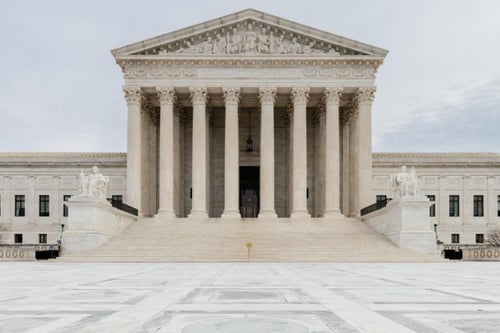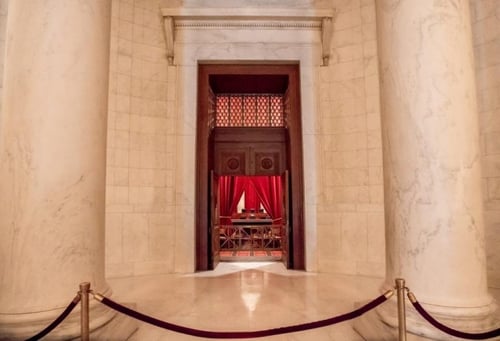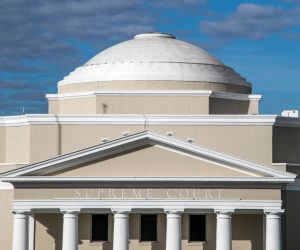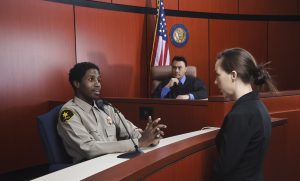
Subjective Entrapment, Hearsay Testimony, And The Confrontation Clause
18
Subjective Entrapment, Hearsay Testimony, And The Confrontation Clause
Subjective Entrapment – Legal Framework
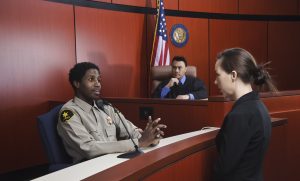 There are two types of entrapment in Florida: subjective entrapment and objective entrapment. To determine whether a defendant has a viable objective entrapment defense, courts look solely to the conduct of law enforcement and assess whether the conduct was so egregious it violated the due process rights of the defendant. But this post does not concern objective entrapment. Instead, the focus of this article is subjective entrapment.
There are two types of entrapment in Florida: subjective entrapment and objective entrapment. To determine whether a defendant has a viable objective entrapment defense, courts look solely to the conduct of law enforcement and assess whether the conduct was so egregious it violated the due process rights of the defendant. But this post does not concern objective entrapment. Instead, the focus of this article is subjective entrapment.
The defense of subjective entrapment is statutorily defined in Florida. See Fla. Stat. § 777.201. In State v. Munoz, 629 So.2d 90 (Fla. 1993), the Florida Supreme Court established the three-question inquiry used to resolve a subjective entrapment defense, as well as the burden-shifting process required by section 777.201.
The first question to be addressed under the subjective test is whether an agent of the government induced the accused to commit the offense charged. On this issue, the accused has the burden of proof and, pursuant to section 777.201, must establish this factor by a preponderance of the evidence. If the first question is answered affirmatively, then a second question arises as to whether the accused was predisposed to commit the offense charged; that is, whether the accused was awaiting any propitious opportunity or was ready and willing, without persuasion, to commit the offense. On this second question, according to our decision in Herrera, the defendant initially has the burden to establish lack of predisposition. However, as soon as the defendant produces evidence of no predisposition, the burden then shifts to the prosecution to rebut this evidence beyond a reasonable doubt.
Id. at 99-100.
“The third question under the subjective test is whether the entrapment evaluation should be submitted to a jury.” Id. at 100.
In Munoz, the Florida Supreme Court rejected the State’s argument that section 777.201 requires a jury to decide subjective entrapment in every case. Only where there are disputed issues of fact on the first two questions—inducement and predisposition—is a subjective entrapment defense appropriate for a jury. Id.
Where undisputed facts establish inducement by a preponderance of the evidence, and the State is unable to establish predisposition beyond a reasonable doubt, the trial court is required to find entrapment as a matter of law, and should not submit the issue to a jury. “To hold otherwise would violate procedural due process.” Id.
Pre-trial Evidentiary Hearings on Subjective Entrapment –is Hearsay Evidence Admissible?
More and more, Florida courts are using pre-trial evidentiary hearings to assess the strength and weaknesses of a defendant’s subjective entrapment defense.
On one end of the spectrum, a trial court may rule after an evidentiary hearing that the defendant failed to adduce sufficient evidence of inducement to put the question to a jury. Or the court may decide there is a genuine factual dispute regarding inducement or predisposition, in which case the subjective entrapment defense must be decided by a jury.
But at the other end of the spectrum, if a defendant successfully proves inducement by a preponderance of the evidence at the pretrial hearing, and the State cannot adduce evidence to carry its burden of proving predisposition beyond a reasonable doubt, the trial court is required to rule that the defendant proved subjective entrapment as a matter of law, and the charges should be dismissed.
Given the varying outcomes from these evidentiary hearings, the nature of the evidence presented by the defendant and the State is critical.
But what happens if the only evidence the State proffers during the pretrial evidentiary hearing is hearsay?
For instance, the State elects to have a police officer testify about what a confidential informant told the officer, rather than having the confidential informant provide direct testimony.
This is an open question in subjective entrapment jurisprudence in Florida, but the answer is easy.
The State should not be allowed to rely on hearsay testimony alone to create a fact question on the issues of inducement or predisposition. Nor should the State be permitted to satisfy its burden of proof on predisposition if the defendant is able to establish inducement by a preponderance of the evidence.
While the prohibition on hearsay testimony may be relaxed in some pretrial hearings, such as a hearing on a motion to suppress, it is not a correct statement of law to say, as the State often argues, that hearsay is allowed in “any” pretrial hearing.
For instance, in McDaniel v. State, the question for the Second DCA was whether the general rule that hearsay is inadmissible should be relaxed in a motion to dismiss hearing based on the Stand Your Ground statute.
The Second DCA held that there was no reason to relax the rule:
The remaining issues raised by McDaniel on appeal are without merit, with the exception of his argument that the trial court improperly admitted hearsay evidence at the hearing on his motion to dismiss. While the rules of evidence are inapplicable or relaxed in certain proceedings, we have been unable to find—and the parties have not cited—any authority holding that hearsay evidence is admissible at a pretrial evidentiary hearing on a motion to dismiss based on immunity. Cf. Charles W. Ehrhardt, Ehrhardt’s Florida Evidence § 103.1, at 5–7 (2009) (listing certain proceedings in which strict evidentiary rules are inapplicable). . . . Otherwise, given that the burden of proof is on the defendant to establish his entitlement to immunity, hearsay is not admissible to prove a material fact for the court’s consideration, unlike at a motion to suppress hearing where the admissibility of certain evidence sought to be introduced at trial is in issue.
McDaniel v. State, 24 So. 3d 654, 657 (Fla. 2d DCA 2009).
Moreover, section 90.802, Florida Statutes, provides: “Except as provided by statute, hearsay evidence is inadmissible.” Fla. Stat. § 90.802. Unless the State can point to a statute allowing hearsay evidence in pretrial hearings on subjective entrapment (no such statute exists, to the best of my knowledge), then the hearsay testimony should be excluded.
The Second DCA’s decision in Bauer v. State, 528 So. 2d 6 (Fla. 2d DCA 1988) is illustrative.
Mr. Bauer defended the State’s charges for dealing in stolen property by claiming subjective entrapment. Id. at 7. The State’s main witness, a special agent for the Florida Department of Law Enforcement, testified over objection at trial that a confidential informant told him Defendant Bauer was dealing in stolen property prior to the charged conduct. Id.
A jury convicted Mr. Bauer.
The Second DCA reversed, finding that “[a]ny reasonable interpretation” of the special agent’s testimony “leads to the conclusion that it was introduced by the state to prove the truth of the words spoken by the confidential informant, i.e. that the appellant was dealing in and selling stolen property prior to” the investigation. Id. The Second DCA held that the trial court erred by admitting the special agent’s hearsay testimony, and that the error was not harmless because it went straight to predisposition. Id. at 7-8.
The Bauer Court based its harmless error analysis on the rationale underlying the Fifth Circuit’s en banc opinion in United States v. Webster, 649 F.2d 346 (5th Cir. 1981) (en banc).
Prior to Webster, the rule in the Fifth Circuit was that law enforcement could testify about what it learned from confidential informants in subjective entrapment cases. The Webster Court explained why such a rule is undesirable in entrapment cases when predisposition is at issue. The Fifth Circuit described statements made by an informant to a law enforcement officer about specific instances in which the defendant engaged in criminal activities as “out-and-out hearsay” when offered to prove predisposition. Id. at 349.
The Webster Court referred to predisposition as a state of mind and opined that:
Our creation of a rule that allows gross hearsay evidence to be used to prove predisposition has resulted in the very evils that the rule against hearsay was designed to prevent. The jury is free to believe the unsworn, unverified statements of government informants, sometimes unidentified, whose credibility is not subject to effective testing before the jury and whose motivations may be less than honorable. We are hard pressed to envision a situation where the disparity between the probative value and prejudicial effect of evidence is greater.
Id. at 350 (footnote omitted).
Florida state courts should apply the logic of Bauer and Webster and hold that whether offered at a pretrial hearing or at trial, hearsay testimony about out-of-court statements made by confidential informants is inherently prejudicial and inadmissible when predisposition is at issue in entrapment cases.
The Confrontation Clause
A State violates a defendant’s rights under the Confrontation Clause when the State elicits law enforcement testimony regarding statements made to law enforcement by a confidential informant.
Another reason for excluding out-of-court confidential informant statements in all phases of a subjective entrapment case is the Confrontation Clause.
The Confrontation Clause of the Sixth Amendment, made binding on the States by the Fourteenth Amendment, provides that “[i]n all criminal prosecutions, the accused shall enjoy the right … to be confronted with the witnesses against him.”
U.S. Const. amend. VI. In Crawford v. Washington, the Supreme Court held that this provision guarantees a defendant his common-law right to confront those “who ‘bear testimony’ ” against him. 541 U.S. 36, 51 (2004). A witness must deliver his testimony against the defendant in person, or the prosecution must prove that the witness is unavailable to appear at trial and that the defendant has had a prior opportunity for cross-examination. Id. at 53–54.
Not all hearsay falls within the Confrontation Clause’s grasp.
At trial a witness “bears testimony” by providing “‘[a] solemn declaration or affirmation … for the purpose of establishing or proving some fact.’” Id. at 51 (quoting 2 N. Webster, An American Dictionary of the English Language (1828)). The Confrontation Clause protects defendants only from hearsay statements that do the same. Davis v. Washington, 547 U.S. 813, 823-24 (2006).
The Florida Supreme Court has explained the unique Confrontation Clause problems presented when a police officer is permitted to testify about an informant’s out-of-court statements that bear on the defendant’s guilt.
For instance, in Keen v. State, the Florida Supreme Court described, in detail, three prior Florida Supreme Court decisions[1] that establish a clear prohibition on admitting law enforcement testimony regarding an informant’s accusatory out-of-court statement. Keen v. State, 775 So. 2d 263, 270 (Fla. 2000).
The Keen Court explained that even an inference to an informant’s out-of-court statement is improper:
Where the inescapable inference from testimony [concerning a tip received by police] is that a non-testifying witness has furnished the police with evidence of the defendant’s guilt, the testimony is hearsay, and the defendant’s right of confrontation is defeated, notwithstanding that the actual statements made by the non-testifying witness are not repeated.
Id. at 274 (quoting Wilding v. State, 674 So. 2d 114, 118-19 (Fla. 1996)).
The Keen Court made clear that “it is impermissible for the State to have the benefit of statements from mystery witnesses or sources without the defendant having the right of confrontation and cross-examination.” Id. at 273. “In short, the insidious diminution of the precious rights of confrontation and cross-examination, through some literal application of the rule against hearsay, cannot be tolerated.” Id. (quoting Postell v. State, 398 So. 2d 851, 856 (Fla. 3d DCA 1981)).
In Hurst v. State, 842 So. 2d 1041, 1043 (Fla. 4th DCA 2003), the Fourth DCA applied Keen, Baird, Wilding, and Conley when it reversed defendant’s drug conviction. In Hurst, a detective testified at trial that a confidential informant told him the defendant had been selling narcotics at a certain location in Hollywood. The trial court allowed the detective’s testimony over the defendant’s hearsay objections.
One line from Hurst is particularly apropos: “If the tip was so important to the state’s case, the procedure was clear. The state needed to call the informant as a witness, and let the witness be confronted by defense counsel.” Id. at 1044.
The prohibition on the State’s use of officer testimony to introduce out-of-court statements of an informant bearing on a defendant’s guilt is not unique to Florida.
See e.g., State v. Johnson, 982 So. 2d 672, 678-79 (Fla. 2008) (citing United States v. Cromer, 389 F.3d 662 (6th Cir.2004)) (holding certain statements of a confidential informant giving the physical description of the defendant accused of drug distribution were testimonial and thus inadmissible under Confrontation Clause unless the CI was unavailable and there was prior opportunity for the defendant to cross-examine him))).
See also Com. v. Taliba, 929 N.E.2d 1001 (Mass. App. Ct. 2010) (“Officer Bigda’s testimony regarding the confidential informant’s controlled purchase is problematic not because Bigda related what he observed, but because he represented that the informant claimed to have purchased cocaine in the defendant’s apartment”; “Bigda’s testimony made the informant a percipient witness to a drug transaction inside the defendant’s apartment, and without the informant being available for cross-examination, the admission of such testimony was error”) (citing Crawford, 541 U.S. at 51-52); see also Stanley v. Com., 2007-CA-002211-MR, 2010 WL 323123, at *4 (Ky. Ct. App. Jan. 29, 2010).
If the State attempts to rely on law enforcement testimony about what a confidential informant told an officer, trial counsel for the defendant must be sure to lodge not only a hearsay objection, but a Confrontation Clause objection as well.
Contact The Brownlee Law Firm
Contact Michael Brownlee at The Brownlee Law Firm to see how subjective entrapment might affect your case. The Brownlee Law Firm only handles appeals and as a board-certified appellate attorney, Michael Brownlee has the experience and expertise to effectively handle your appeal case, particularly those in habeas proceedings.
Contact The Brownlee Law Firm today for your FREE consultation.
References:
[1] The Keen opinion discusses (1) Wilding v. State, 674 So. 2d 114 (Fla. 1996) (receded from on other grounds in Devoney v. State, 717 So. 2d 501 (Fla. 1998)), (2) Conley v. State, 620 So. 2d 180 (Fla. 1993), and (3) State v. Baird, 572 So. 2d 904 (Fla. 1990).
(2) Conley v. State, 620 So. 2d 180 (Fla. 1993), and (3) State v. Baird, 572 So. 2d 904 (Fla. 1990).


